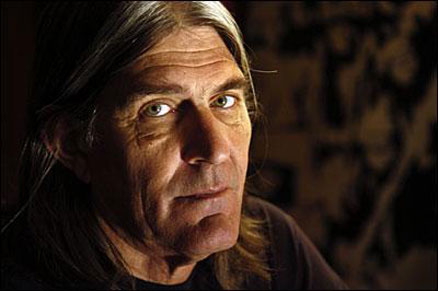The Ward Churchill Debate
A version of this blog post appeared in the Utica Observer-Dispatch on February 11, 2005, and was noted on Cox & Forkum on March 28, 2005.
HAMILTON COLLEGE, February 1, 2005— On Thursday, February 3, Ward Churchill, a Professor and Chair of Ethnic Studies at the University of Colorado at Boulder, will participate in a panel here titled “The Limits of Dissent.” That he will discuss his infamous essay, “Some People Push Back: On the Justice of Roosting Chickens”—wherein, among other bizarre indictments, he calls the civilians in the World Trade Center on 9/11 “little [Adolf] Eichmanns”—has rightly invited debate.
What troubles many the most is obviously Churchill’s ramblings on 9/11, which are odious, fatuous and sorely lack both credibility and seriousness. Indeed, in an interview in April 2004, he said it was a “no-brainer” that “more 9/11s are necessary.” Last week he declined to back off his Eichmann analogy, which evidently is one of his pet phrases. Then, in a statement on Monday, he assured us that the phrase applies “only to . . . “technicians.’”
With such apoplectic venom for America and Americans, one might think Mr. Churchill would just as fiercely champion the freedom of speech. In fact, for more than a dozen years, he has led organized protests, the last one culminating in arrest, to suppress Columbus Day parades. He reminds his followers that the First Amendment doesn’t protect outrageous forms of hate speech. Apparently, hypocrisy doesn’t bother those who thrive on it.
Yet controversy, especially in academe, is necessary, no idea is dangerous or too radical, and the best disinfectant is sunlight. The bigger issue is that it behooves institutions of higher education, particularly elite ones like Hamilton, to maintain high standards in proffering their scarce and prominent microphones. A commitment to free speech—even an absolute one—does not require a school to solicit jerks, rabble-rousers or buffoons.
This is not to say that the grievance or blowback explanation of 9/11—that it’s not who we are and what we stand for, but what we (U.S. foreign policy) does—doesn’t deserve attention. It does, as Newsweek’s Christopher Dickey argued here last semester. The point is, What suddenly makes Ward Churchill an authority on Islamic terrorism? Ditto for Churchill’s colleague, wife and fellow panelist, Natsu Taylor Saito, whose newfound expertise and lecture subject is the Patriot Act. The answer lies not in “what?” but in “whom?”
That “whom” is the Kirkland Project for the Study of Gender, Society and Culture, a faculty-led organization, well funded primarily by the dean’s office. In recent months, the K.P. has become a lightning rod for Hamilton. Its appointment of Susan Rosenberg, a terrorist turned teacher who four years ago was serving out a 58-year sentence in federal prison, brought to the Hill heretofore the most damaging publicity in its 200-year history. Granted, since controversy inheres in its role as an activist interest group, the K.P. has made waves since its founding in 1996. The evidence, however, increasingly indicates that the group courts controversy—and only one side of controversy—as an end in itself.
To be sure, Churchill was initially scheduled to lecture on Indian rights and prisons, and the change in topic and format occurred at the direction not of the K.P. but of the college president. But surely no one doubts that Churchill was invited largely because he is a leftist radical (it’s worth noting that he lacks a PhD). Similarly, the K.P. excludes topics or speakers who don’t pass that ideological litmus test.
Whether it’s an appropriate for such a group to exist on campus is, fortunately, no longer taboo, since Hamilton’s administration has appointed a faculty committee to review the “mission, programming, budget, and governance” of the Kirkland Project. Formally, the review is a routine procedure about every 10 years, but in this case it’s overdue. Whatever the ensuing recommendations, one hopes that the Board of Trustees and the Kirkland Endowment will also take this opportunity to reevaluate the use of their generosity. The college boasts too much talent to be consumed by another gratuitous scandal.
Addendum (5/7/2005): On September 11, 2002, the following words were written: “The real perpetrators [of the 9/11 attacks] are within the collapsed buildings.” The writer? Saddam Hussein. Would Ward Churchill have disagreed?
Addendum (7/9/2005): Proving that what you say is as important as how you say it, now even Fouad Ajami is on record that U.S. foreign policy—specifically, our “bargain with [Mideast] authoritarianism”—“begot us the terrors of 9/11.”
Of course, there’s no outcry over Ajami since, unlike Churchill, this professor does not need to use phrases like “little Eichmanns” to make his point.

 Comments
Comments